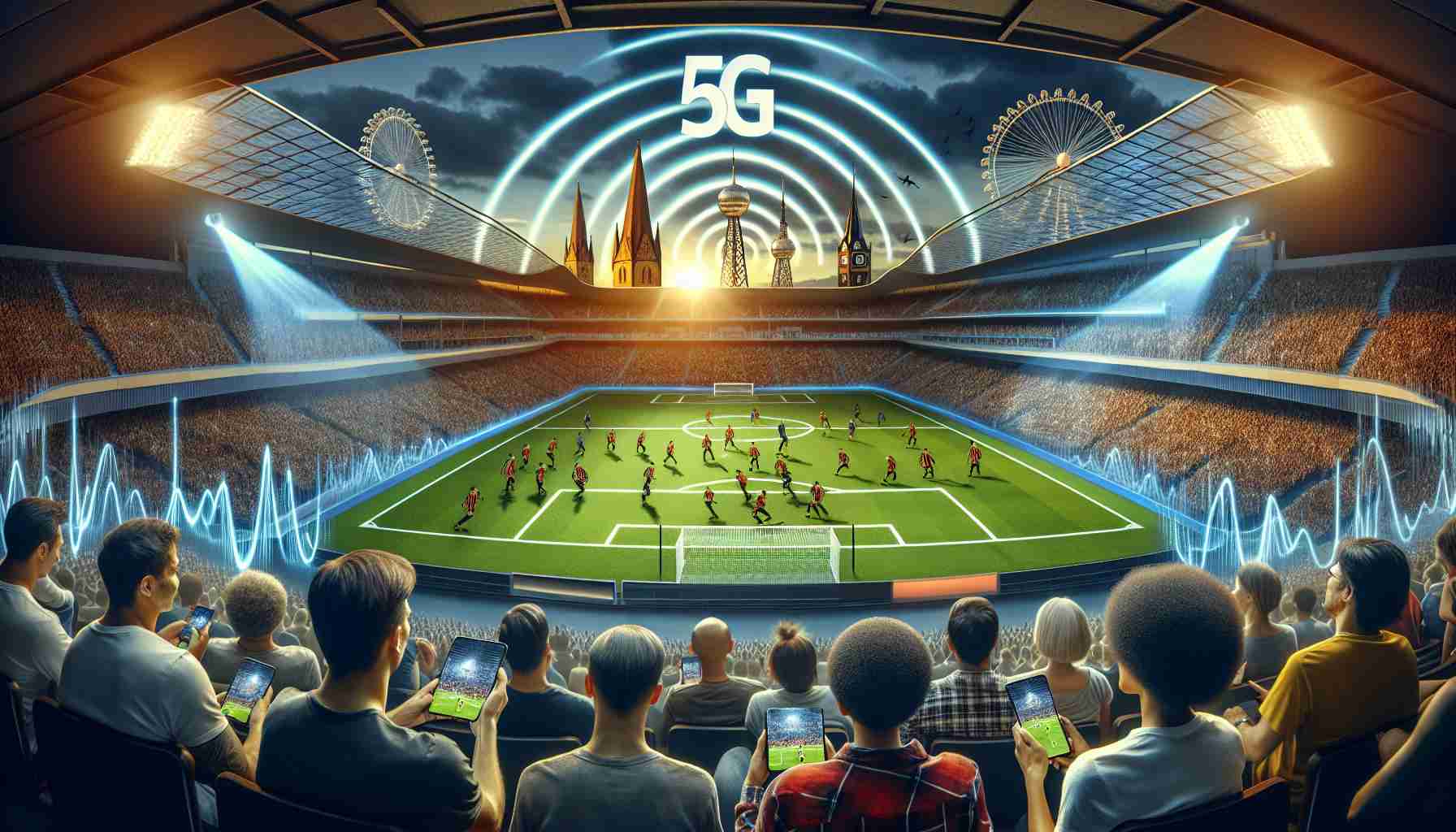Revolutionizing Sports Broadcasting: Germany is on the verge of a broadcasting evolution as four public broadcasting stations – BR, NDR, RBB, and SWR – are set to collaborate in a groundbreaking experiment. During the upcoming EURO 2024 football championship and the Olympic Games, they will deliver live streams via 5G Broadcast technology.
Expansion Beyond Traditional Programming: In an effort to extend their offerings beyond what’s usually aired on their main channels, these networks will provide additional content for the viewers. The trials are scheduled across five German cities: Berlin, Hamburg, Munich, Stuttgart, and Halle/Saale, with the potential to reach approximately eight million residents.
Advanced Technology Requirements: However, the catch is that these enhanced streaming services will only be accessible through certain 5G-enabled smartphones that are compatible with the new broadcasting standards.
Pioneering Collective Trials: This event marks the first time that these broadcasters have united to test 5G Broadcast across a wider network in Germany, following individual tests by separate broadcasters. The partnership involves Media Broadcast, one of the nation’s foremost service providers in the broadcast and media industry.
The Future of Mobile Streaming: 5G Broadcast defines the new global standard that could enable viewers to catch live events on their devices without tapping into their data plans. Additionally, the problems of interrupted service due to overcrowded networks are expected to be eliminated. The results of this testing phase will influence future decisions on the deployment of 5G Broadcasting across ARD’s network.
For more details on this initiative, information can be obtained from the ARD Press Office.
When discussing the innovative use of 5G broadcasting to enhance live sports streaming in Germany, several questions, challenges, and controversies may arise, along with the consideration of advantages and disadvantages of the technology.
Questions:
– How will 5G Broadcast improve the viewing experience for live sports events?
– What is required for audiences to access live streams via 5G Broadcast technology?
– How does 5G Broadcast differ from current streaming over 4G or Wi-Fi networks?
– What implications does 5G Broadcasting have for data consumption and network congestion?
Answers:
– 5G Broadcast can provide higher quality streams with lower latency, leading to a better viewing experience for live events.
– To access 5G Broadcast streams, viewers will need 5G-enabled smartphones that are compatible with the new broadcasting standards.
– 5G Broadcast is more efficient at delivering content to large numbers of users in a specific area compared to traditional streaming, which reduces buffering and lag.
– 5G Broadcast is designed to not consume data from user’s data plans and to prevent network congestion during high demand events by broadcasting to multiple devices at once.
Key Challenges:
– Ensuring that the necessary infrastructure for 5G broadcasting is in place and that users have compatible devices.
– Achieving widespread adoption among consumers, who may be hesitant to upgrade devices for compatibility.
– Addressing possible technological hurdles during the rollout phase, such as ensuring uninterrupted and high-quality service.
Controversies:
– The impact on traditional broadcasting methods and potential displacement of standard TV viewing patterns.
– Concerns over the cost implications for consumers in the long term, including the need for new devices and potential increase in service fees.
Advantages:
– Superior streaming quality and a more immersive viewing experience.
– Efficient data usage that doesn’t count against user’s data caps.
– Potential reduction in network congestion during live events.
Disadvantages:
– Limited initial access due to device compatibility and coverage constraints.
– Cost of infrastructure development and possible increase in consumer prices.
– Risk of technological obsolescence for current broadcasting equipment and consumer devices.
For more general information about 5G technology and its implications on various industries including broadcasting, please refer to the main domain of reputable organizations like the 3rd Generation Partnership Project (3GPP) or the International Telecommunication Union (ITU). These organizations are involved in developing and setting 5G standards.
The source of the article is from the blog queerfeed.com.br
